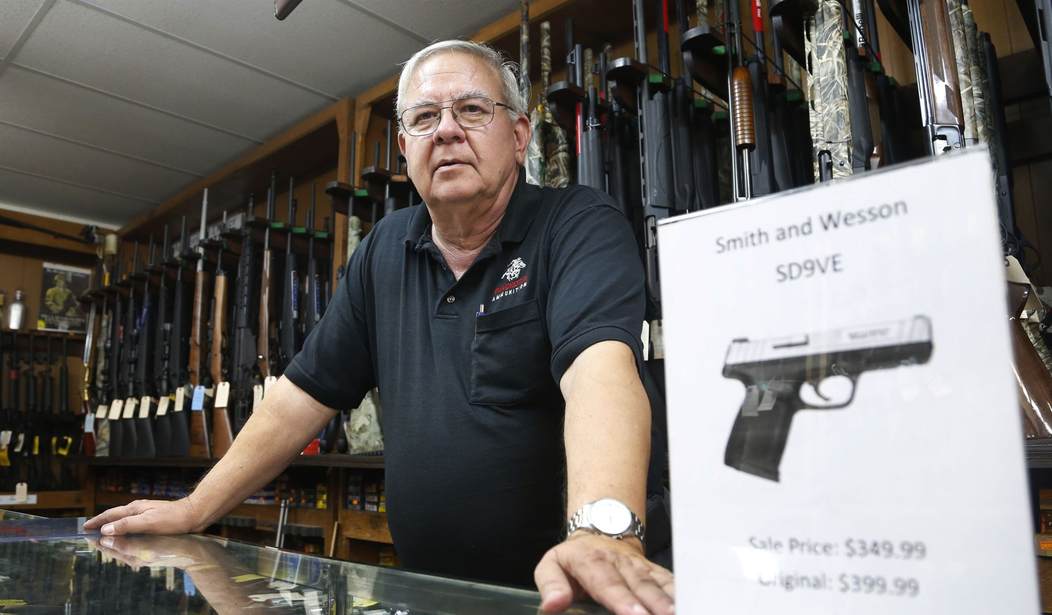In addition to the thousands of candidates running for various federal, state, and local elected offices today, there are numerous ballot initiatives being presented to voters. You probably won’t be surprised to hear that the Second Amendment is on the ballot in some states, such as the red flag law being proposed in Wisconsin and endorsed by Governor Tony Evers. As with most such laws, this one would allow a judge to order the police to immediately remove any firearms from the home of a person who is suspected of potentially posing a danger to themselves or others. The NRA’s Institute for Legislative Action (NRA-ILA) began running a radio advertising campaign to oppose the law, but Politifact quickly jumped in to “fact check” the ad, labeling it “mostly false.” But as the NRA-ILA points out, this is yet another example of a supposed “fact check” being far more of a case of biased political sleight-of-hand than any sort of factual analysis.
It’s election time, and supposedly “independent fact-checkers” are again bending the truth to support a political agenda. This time they are contorting evidence and linguistics to insist it is “mostly false” that “red flag laws” allow the government “to confiscate your firearms without due process.”
For some time now, the NRA has been warning of the problems, fallacies, and dangers of so-called “red flag laws,” including here, here, and here.
Our basic points are simple.
So is it accurate to say that the Wisconsin bill allows the removal of firearms from a person subjected to a “red flag” order “without due process?” The text of the bill would certainly suggest that to be the case. First of all, a judge can issue such an order in response to a complaint without the person in question being present for the proceeding. They may not even be aware that the hearing is taking place. If a sheriff or deputy shows up at the respondent’s home, they are allowed to “require the respondent to immediately surrender all firearms in the respondent’s possession.”
In either of those scenarios, the person suspected of being a danger to themself or others will clearly not have the opportunity to challenge the order or defend themself with the help of an attorney. They will then face a lengthy and likely expensive legal battle to prove that they are not a threat and convince the authorities to return their firearms.
I’ve written about red flag laws here in the past and this isn’t really a black-or-white issue to me. Seeing gun confiscation taking place (and that’s clearly what we’re talking about in terms of the Wisconsin bill) should always make supporters of the Second Amendment uneasy. But there are times when erring on the side of caution may be excusable. People convicted of violent crimes don’t really come into the equation here because they have already forfeited their right to be trusted to safely keep and bear arms. But other people without an applicable criminal record can sometimes cross a line where the use of a red flag law may be justifiable. If you assault someone or credibly threaten their life, you may be in need of a “cooling off period” during which it would be harder for you to do them harm. The same would apply to people who repeatedly talk about committing suicide.
There is also a valid concern over the idea of giving a potentially violent person “too much advance notice.” If someone is legitimately considering a violent act with their firearm, sending them a notice to appear in court might make them change their mind, but it could also spur them to faster action before they lose their ability to carry out the plan.
But these red flag laws also leave the door open to erroneous accusations or even intentional misuse. The most common hypothetical example is that of the “angry girlfriend” who falsely claims that her boyfriend threatened her life in order to cause trouble. A very liberal judge might prefer to issue such an order even if the evidence presented isn’t credible just to “get a couple more guns off the streets.”
If we’re going to have such laws – and that’s obviously the case today – it seems to me that they would have to be worded more strictly to ensure the maximum amount of due process without recklessly endangering anyone’s life. A requirement for multiple witnesses, including someone not in a close relationship with the respondent, could be helpful and add a bit more protection against wrongful accusations. Video or audio evidence would be ideal. But more than anything else, such laws should include very stiff punishments including prison time for anyone found to have falsely made such an accusation just to take away the firearms of a person they are angry with. The biggest problem with that idea is the reality that many such disagreements take place in private with no witness or electronic recording of the disagreement. This leaves the courts with a literal “he said, she said” scenario in many cases.
There isn’t going to be any sort of easy, one-size-fits-all solution to this controversy as far as I can tell. Holding someone accountable after they have committed a violent gun crime is obviously required. But for the victim, that accountability may come too late. As I said at the top… it’s complicated.
Don’t forget that we’re not just covering the midterms tonight but are preparing for the all-important 2024 presidential cycle as well. We need to make sure Democrats are one and done in the White House, too. If you want real in-depth analysis and exclusive content and wish to support the long-term mission, join HotAir VIP today and use promo code VIPWEEK to receive 45% off your membership!








Join the conversation as a VIP Member